
Find Help
More Items From Ergsy search
-

How do screw worms infest their hosts?
Relevance: 100%
-
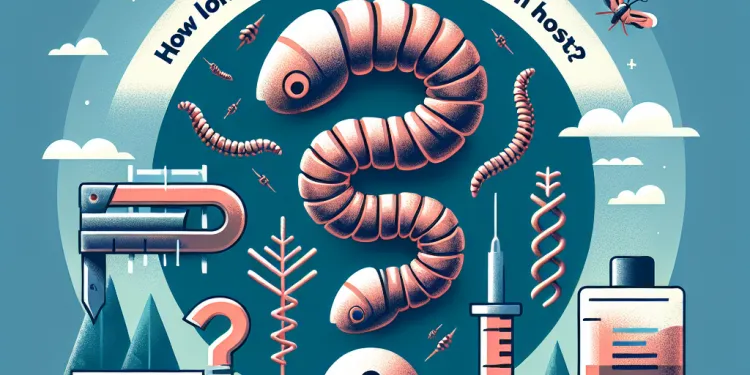
How long do screw worm larvae typically infest a host?
Relevance: 92%
-

How are screw worm infestations treated?
Relevance: 82%
-
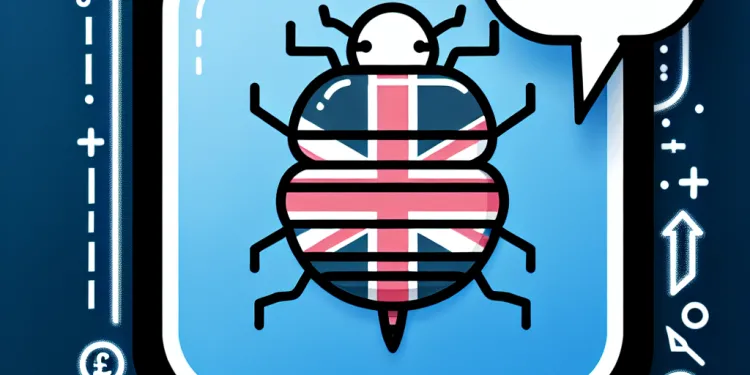
Can screw worm infestations be prevented?
Relevance: 80%
-

What are the symptoms of a screw worm infestation?
Relevance: 78%
-

What are Screw Worms parasites?
Relevance: 73%
-

How do screw worms reproduce?
Relevance: 72%
-

Are screw worms dangerous to humans?
Relevance: 70%
-
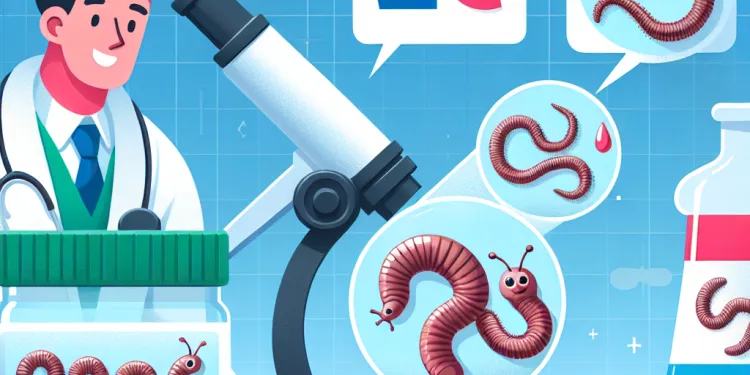
Can screw worms cause zoonotic disease?
Relevance: 67%
-

What impact do screw worms have on livestock?
Relevance: 66%
-

Are there any natural predators of screw worms?
Relevance: 63%
-

Where are screw worms found geographically?
Relevance: 60%
-

What methods are used to control screw worm populations?
Relevance: 59%
-

What species of flies produce screw worms?
Relevance: 57%
-

What measures are taken during a screw worm outbreak?
Relevance: 57%
-

Has the screw worm been eradicated in some areas?
Relevance: 55%
-

What animals can be affected by screw worms?
Relevance: 40%
-

What economic impact do screw worms have?
Relevance: 40%
-

How can individuals help in the fight against screw worms?
Relevance: 40%
-
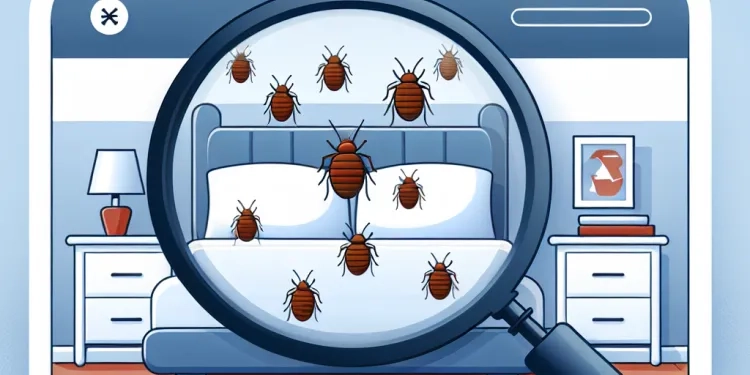
What are the signs of a bed bug infestation?
Relevance: 25%
-

Why is screw worm eradication important?
Relevance: 21%
-

Can nits survive on furniture or clothing?
Relevance: 17%
-

Are nits contagious?
Relevance: 15%
-

How can I prevent bringing bed bugs into my home?
Relevance: 14%
-
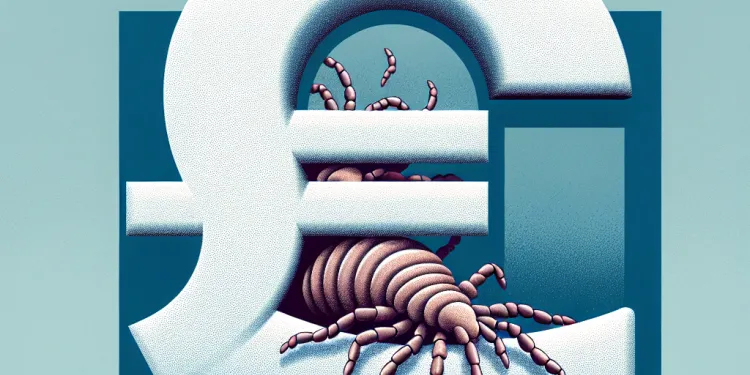
What are head lice?
Relevance: 14%
-
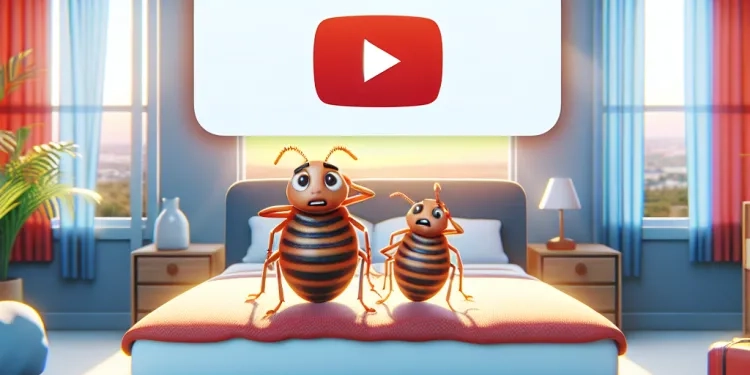
Why are bed bugs so difficult to eliminate?
Relevance: 14%
-

What animals are natural hosts of the Marburg virus?
Relevance: 13%
-
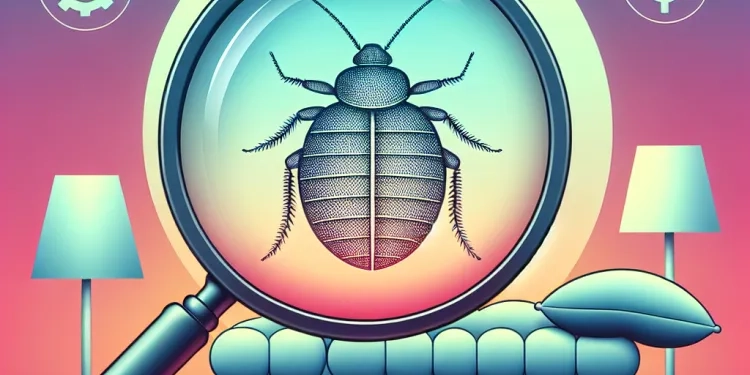
What are bed bugs?
Relevance: 13%
-
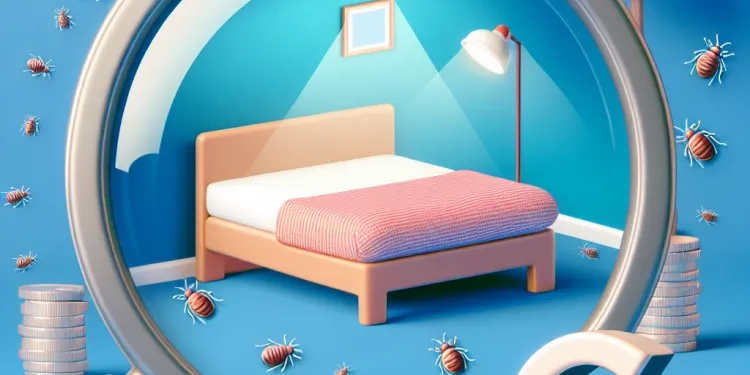
Do bed bugs only live in beds?
Relevance: 13%
-

How do bed bugs enter my home?
Relevance: 12%
-
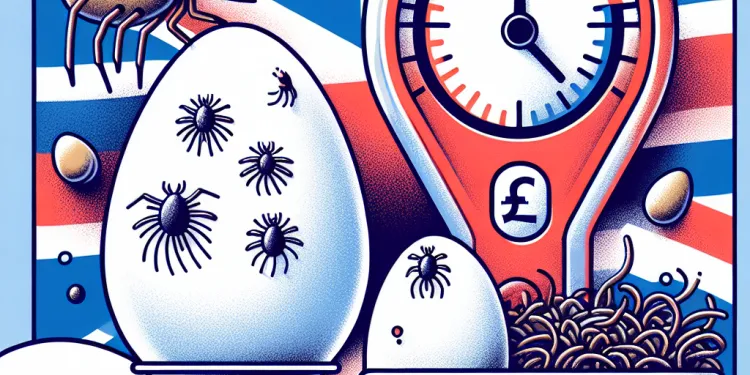
How long does it take for nits to hatch?
Relevance: 12%
-
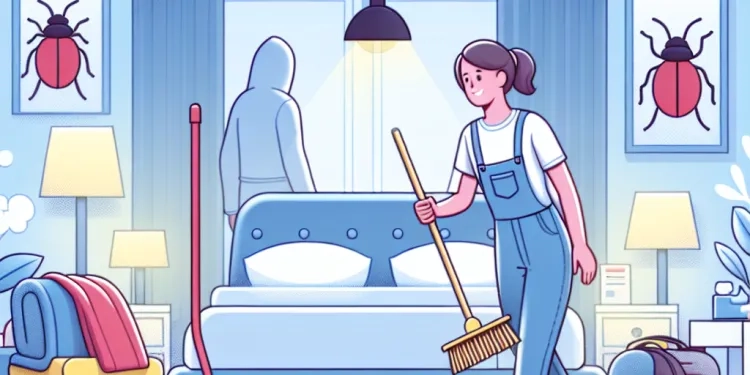
Are bed bugs dangerous?
Relevance: 12%
-
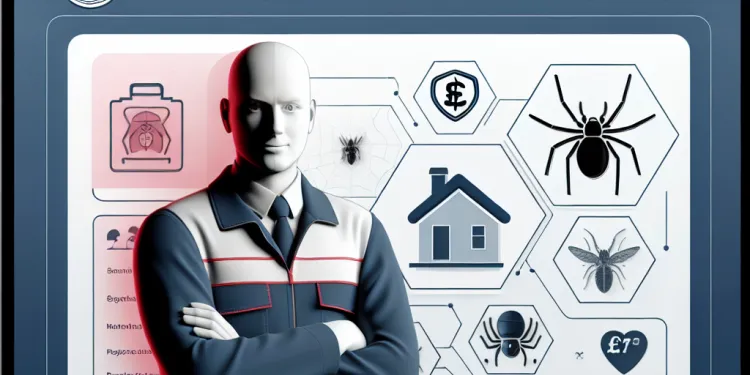
Is professional pest control needed for spiders?
Relevance: 12%
-
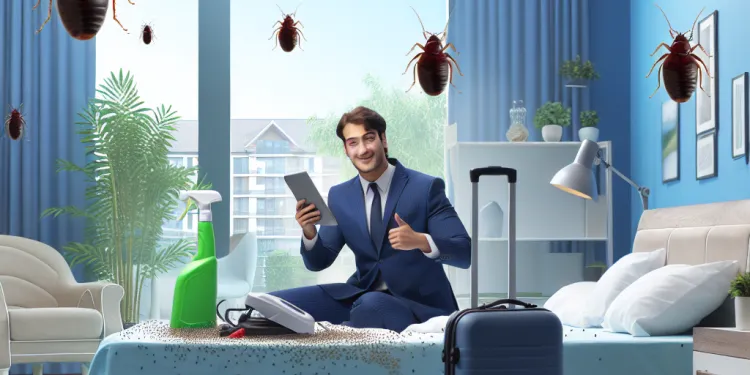
What should I do if I find bed bugs in my house?
Relevance: 11%
-
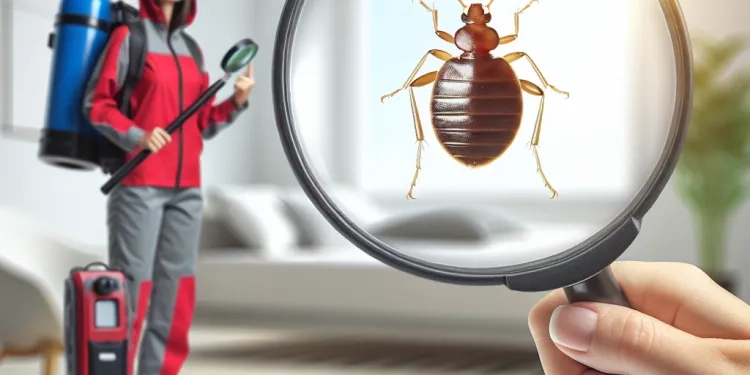
Can I get rid of bed bugs myself?
Relevance: 11%
-
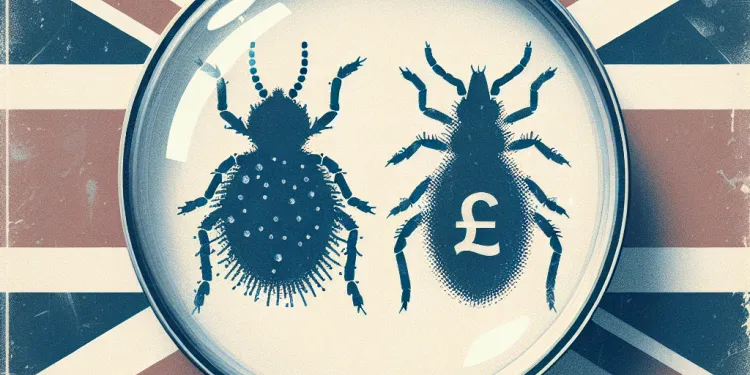
Are nits and head lice the same thing?
Relevance: 10%
-

Do nits live off the scalp?
Relevance: 10%
-

What items should I wash if I have bed bugs?
Relevance: 10%
-

Bed Bugs / bedbugs
Relevance: 10%
-

Are there any natural remedies for bed bugs?
Relevance: 10%
Introduction to Screw Worms
Screw worms are parasitic larvae of the Cochliomyia hominivorax fly, commonly known as the New World screw worm. These pests are known for their invasive and destructive feeding habits, making them a significant concern among livestock and wildlife populations. The screw worm is native to the tropical and subtropical regions of the Americas but has the potential to infest areas outside its native range.
Lifecycle of Screw Worms
The lifecycle of screw worms begins when adult female flies lay their eggs on warm-blooded animals. Typically, these eggs are deposited near open wounds, sores, or mucous membranes where the larvae can easily access tissue. Once the eggs hatch, usually within a day, the larvae or maggots immediately begin to burrow into the flesh of the host, feeding voraciously on living tissue. This destructive feeding method distinguishes screw worms from other maggots, which typically consume dead tissue.
Methods of Infestation
Infestation usually occurs through any type of open wound or skin lesion. The female screw worm fly is attracted to the odours emitted by these wounds, making them prime sites for egg-laying. Once the larvae infest the host, they create distinct pockets within the flesh, which leads to severe discomfort, secondary infections, and potentially life-threatening conditions if untreated. Hosts include a range of mammals such as livestock, wild animals, and occasionally, humans.
Symptoms and Impact
Signs of screw worm infestation in animals include a noticeable wound that fails to heal, an odour of decay, discharge, and significant distress or discomfort in the affected animal. Feeding activity can result in extensive tissue damage, leading to systemic infection if the infestation is extensive, often requiring aggressive medical intervention. In livestock, screw worms can lead to substantial economic losses due to decreased productivity and increased veterinary costs.
Control and Prevention
Effective control of screw worms relies on prevention and monitoring. The sterile insect technique (SIT) has been a successful eradication strategy in some regions. This method involves releasing sterilized male flies into the environment to mate with wild females, reducing the population over time. On-farm measures include maintaining good wound care practices, regular inspection of animals, and prompt treatment of open sores to prevent potential infestation.
Conclusion
Screw worm infestations pose a serious threat to animal health and agriculture. Understanding their lifecycle and methods of infestation provides a foundation for effective control measures. With targeted prevention and timely interventions, the impact of screw worms can be significantly reduced, protecting both animal welfare and agricultural sustainability.
What are Screw Worms?
Screw worms are baby flies that are bad for animals. They are called larvae and come from the Cochliomyia hominivorax fly. These worms can hurt animals and are found in warm parts of the Americas. They can also spread to other places.
How Do Screw Worms Live?
The life of a screw worm starts when a mother fly puts her eggs on animals. The mother fly chooses places like cuts or sore spots on the animal. The eggs hatch in one day, and the tiny worms, called maggots, eat the animal's skin. They eat living skin, not dead skin, which makes them different from other maggots.
How Do Animals Get Infested?
Screw worms get inside an animal through cuts or sores. The mother fly finds these spots because they smell. She lays eggs there. When the worms hatch, they make the animal very uncomfortable. This can lead to more infections and make the animal very sick. Animals like cows, wild animals, and even people can get screw worms.
How to Tell if an Animal Has Screw Worms
Animals with screw worms often have a cut that won't heal, a bad smell, and pus. They will feel pain and look uncomfortable. The worms can hurt the animal's body a lot. This can make infections worse and require help from a vet. Farmers lose money when their animals have screw worms because sick animals work less and need more care.
How to Stop Screw Worms
To stop screw worms, people need to watch their animals and take action quickly. One way that helps is the sterile insect technique (SIT). This means letting out male flies that cannot have babies. These flies stop the bad flies from having more eggs. Farmers should also take care of animal wounds and check them often to stop screw worms.
Ending Thoughts
Screw worms are very bad for animals and farming, causing sickness and loss. Knowing how they live and spread helps in stopping them. By preventing and acting quickly, we can protect animals and farms from screw worms.
Frequently Asked Questions
What are screw worms?
Screw worms are larvae of certain fly species, particularly the New World screwworm (Cochliomyia hominivorax) and the Old World screwworm (Chrysomya bezziana), which infest wounds in warm-blooded animals.
How do screw worms infest their hosts?
Screw worms infest their hosts by the adult female fly laying eggs on the edges of wounds, mucous membranes, or body openings of animals. Once the eggs hatch, the larvae (maggots) burrow into the flesh of the host to feed.
What conditions favor screw worm infestation?
Warm temperatures, open wounds, and the presence of livestock or wild animals create favorable conditions for screw worm infestation.
What animals are commonly affected by screw worms?
Livestock such as cattle, sheep, goats, and dogs, as well as wild mammals and occasionally humans, can be affected by screw worms.
How can I identify a screw worm infestation?
A screw worm infestation can be identified by observing growing wounds with visible maggots and a distinctive foul smell coming from the infected area.
Is screw worm infestation harmful to the host?
Yes, screw worm infestation is harmful and can be fatal if not treated, as the maggots cause severe tissue damage and secondary infections.
How quickly do screw worm larvae develop?
Screw worm larvae develop rapidly, typically within 5-7 days after hatching, they drop to the ground to pupate.
Can screw worms infest humans?
Yes, though rare, screw worms can infest humans, particularly in rural or tropical areas where the flies are prevalent.
How are screw worm infestations treated?
Treatment involves removing larvae, cleaning and disinfecting the wound, and administering antibiotics to prevent secondary infections. In severe cases, veterinary or medical intervention is required.
What preventive measures are there against screw worms?
Preventive measures include controlling fly populations, treating wounds promptly, applying insecticides, and using sterilized flies to control populations.
Where are screw worms most commonly found geographically?
Screw worms are found predominantly in tropical and subtropical regions, including parts of Central and South America, Africa, the Middle East, and Southeast Asia.
Are there different types of screw worms?
Yes, the main types are the New World screwworm (Cochliomyia hominivorax) and the Old World screwworm (Chrysomya bezziana). Both have similar behaviors and effects on hosts.
What is the life cycle of a screw worm?
The screw worm lifecycle includes egg, larval, pupal, and adult stages. Adult flies lay eggs on wounds, larvae feed on the host, pupate in soil, then emerge as adults.
Can screw worm infestations recur?
Yes, if the causal flies remain in the environment and accessible wounds are present, reinfestations can occur.
What impact do screw worms have on livestock industries?
Screw worms can cause significant economic losses in livestock industries due to animal death, decreased productivity, and required treatment costs.
How do screw worm infestations spread?
Infestations spread when adult flies travel to new areas and lay eggs on suitable hosts with open wounds or exposed tissues.
What role does weather play in screw worm infestations?
Warm and humid weather conditions favor the survival and reproduction of screw worms, thereby increasing the risk of infestations.
What biological control methods exist for screw worms?
Biological control methods include the release of sterile flies to reduce breeding and regulate any infestation populations.
How do farmers manage screw worm risks?
Farmers manage risks by keeping animals in good health, monitoring for wounds, and using insect repellents and traps to minimize fly populations.
What is the historical significance of screw worm eradication programs?
Eradication programs have historically been successful in eliminating screw worms from large regions like North America, using sterile insect techniques to stop reproduction.
What are screw worms?
Screw worms are bugs. They are a type of fly. The baby flies look like little worms. These worms can make animals sick.
Tips to learn more:
- Look at pictures of screw worms online.
- Ask a teacher or a family member for help.
- Watch videos about screw worms for more information.
Screw worms are baby flies. There are two main kinds: New World screwworm and Old World screwworm. These baby flies grow in the cuts or wounds of warm-blooded animals like pets or farm animals.
How do screw worms get into animals?
Screw worms are bugs that look like flies. They lay eggs on animals. When the eggs hatch, small worms come out. These worms get into the animal's skin and make them sick. If you have trouble reading, ask someone to read with you. Or use a tool that reads words out loud.Screw worms are a type of fly that can cause problems for animals. The female screw worm fly lays eggs on wounds or openings on the animal's body. When the eggs hatch, the baby worms (called maggots) crawl into the animal's skin to eat.
To make this information easier to understand, you can use tools like picture dictionaries or apps that read text out loud. It might also help to talk about it with someone you trust.
What makes screw worms appear?
Warm weather, cuts, and having farm animals or wild animals around can make it easy for screw worms to cause problems.
Which animals usually get screw worms?
Screw worms can hurt many animals. Animals like cows, sheep, goats, and dogs can get them. Wild animals and sometimes people can also be affected.
How do I know if there are screw worms?
Screw worms are bad for animals. They are small bugs that hurt animals.
Here is how you can tell if there is a screw worm problem:
- Look for open cuts on the animal.
- See if the cut is red or looks bad.
- Check if there are lots of flies around the cut.
- Watch if the animal seems very bothered or in pain.
If you think there are screw worms, tell a grown-up. They can call a vet for help.
You can tell if there is a screw worm problem if you see wounds getting bigger with small white worms in them. You might also notice a bad smell coming from the hurt area.
Can screw worms hurt animals or people?
Screw worms can make animals or people sick. It's important to get help from a doctor or vet if you think there is a problem.
You can use pictures and short videos to learn more. These might help you understand better. Ask a teacher, parent, or friend if you need more help.
Yes, screw worm infestation is very bad. It can make you very sick, and if you don’t get help, it can even cause death. The maggots hurt your skin and can cause other infections.
How fast do baby screw worms grow?
Here is a simple way to understand it:
- Baby screw worms are called larvae.
- They grow and change quickly.
- It takes only a few days for them to get bigger.
To make reading easier:
- Use your finger to follow the words.
- Look at pictures of screw worms to understand better.
- Ask someone to read with you.
Screw worm babies grow fast. After they hatch, they take about 5 to 7 days to grow. Then, they fall to the ground to change into the next stage.
Can screw worms get into people?
Screw worms can sometimes get into people's skin. If you think you have a problem with screw worms, tell a doctor right away. They can help you.
Here are some tips to help:
- If you have a sore that doesn't heal, go see a doctor.
- Keep cuts clean to stop bugs from getting in.
- Tell an adult if you feel worried or scared about it.
Yes, screw worms can get into people, but it doesn't happen often. They usually live in places with lots of flies, like the countryside or warm, wet places.
How do you treat screw worm infestations?
Here is how to take care of screw worm infestations:
- Ask a vet for help. They know what to do.
- Medicine can help get rid of screw worms.
- Keep the area clean and dry.
- Check pets and animals often to make sure they are okay.
Use pictures or videos to learn more.
The treatment means taking out the tiny bugs, cleaning the sore, and giving medicine to stop more infections. If it's really bad, a doctor or animal doctor needs to help.
How can we stop screw worms?
Here are some ways to keep animals safe from screw worms:
- Check animals for any cuts or wounds.
- Keep animals clean and healthy.
- Use medicine to protect animals from flies.
- Ask a vet for help if you find any larvae.
- Make sure to cover any open wounds on animals.
It can be helpful to use pictures or diagrams to understand these steps. You can also use a calendar to remember when to check the animals.
Here are some ways to stop flies from being a problem:
- Keep flies away. This can help stop problems before they start.
- Take care of cuts or scrapes right away. Clean them well and cover them.
- Use bug spray to keep flies away from you and your home.
- Sometimes, special flies that can't have babies are used to keep the number of flies low.
Where do screw worms live?
Screw worms are insects. They like warm places. They live in Central America, South America, and some parts of the United States.
If you need help reading, try using a ruler to follow the lines or read with a friend.
Screw worms live in warm places. They are found in Central and South America, Africa, the Middle East, and Southeast Asia.
Do screw worms come in different kinds?
Screw worms can be different kinds. Here are some ways to learn and understand:
- Use simple words.
- Look at pictures of screw worms to see how they are different.
- Ask someone to explain it to you.
- Use a dictionary to find out what tricky words mean.
There are two main kinds of screwworms. One is called the New World screwworm, and the other is the Old World screwworm. They act in the same way and can cause the same problems for animals.
What happens in a screw worm's life?
Screw worms start as eggs.
Then, they hatch into tiny larvae called maggots.
Next, they turn into pupae, like a cocoon.
Finally, they become adult flies.
Want to learn more? You can look at pictures or watch videos to see each stage.
A screw worm goes through four stages in its life. First, it is an egg. Then it becomes a baby worm called a larva. After that, it changes into a pupa in the soil. Finally, it becomes an adult fly.
The adult fly lays eggs on cuts or wounds. The baby worms, or larvae, eat and grow on the animal. Then they go into the soil to change into pupae. After that, they turn into adult flies.
If reading is tricky, asking someone to read it for you can help. You can also try listening to audiobooks or using apps that read text aloud.
Can screw worms come back?
Screw worms are flies that can hurt animals and people. Sometimes they can come back if we don't get rid of them all. Here are some tips to help:
- Check for screw worms often.
- Keep animals clean.
- If you find screw worms, tell a vet.
These steps can help stop screw worms from coming back.
Yes, if there are flies around and there are open cuts or sores, the flies can come back and cause problems again.
How do screw worms hurt farms with animals?
Screw worms are a big problem for farms. They can cause animals to die. This makes farmers lose money. When animals are sick, they don’t make as much milk or meat, and they need medicine, which costs more money.
How do screw worm infestations spread?
Screw worms are bugs that can make animals sick. They lay eggs on animals.
When the eggs hatch, baby worms come out.
The worms eat the animal's skin.
This is how they spread and make more worms.
If you find screw worms on animals, call a vet.
A vet is a doctor for animals. They can help stop the worms.
Use a magnifying glass to look closely at the animal.
Pictures can help to understand what screw worms look like.
Flies can spread when they move to new places. They lay eggs on animals or people who have open cuts or sores.
How does weather affect screw worms?
Hot and wet weather helps screw worms live and have babies. This makes it easier for them to spread and cause problems.
How can we naturally control screw worms?
Screw worms are insects that can hurt animals. We can use nature to help stop them. Here are some ways:
- Using other insects: We can use good bugs that eat screw worms or stop them from growing.
- Special fly release: We can release flies that can’t have babies to stop more screw worms from being born.
For extra help, think about using pictures or asking a friend to explain. Also, watching videos can make learning fun and easy!
Biological control methods use special ways to manage pests. One way is to release flies that cannot have babies to help stop too many flies from being born.
How do farmers keep screw worms away?
Farmers keep their animals safe in several ways.
They make sure animals stay healthy. Farmers also check if animals have cuts or wounds.
They use things like spray and traps to stop too many flies from being around.
Why is getting rid of screw worms important in history?
In the past, people have been able to get rid of screw worms from big areas like North America. They did this by using a special method. They made the insects unable to have babies, so the worms couldn't have new babies.
Useful Links
This website offers general information and is not a substitute for professional advice.
Always seek guidance from qualified professionals.
If you have any medical concerns or need urgent help, contact a healthcare professional or emergency services immediately.
- Ergsy carfully checks the information in the videos we provide here.
- Videos shown by Youtube after a video has completed, have NOT been reviewed by ERGSY.
- To view, click the arrow in centre of video.
- Most of the videos you find here will have subtitles and/or closed captions available.
- You may need to turn these on, and choose your preferred language.
- Go to the video you'd like to watch.
- If closed captions (CC) are available, settings will be visible on the bottom right of the video player.
- To turn on Captions, click settings .
- To turn off Captions, click settings again.
More Items From Ergsy search
-

How do screw worms infest their hosts?
Relevance: 100%
-

How long do screw worm larvae typically infest a host?
Relevance: 92%
-

How are screw worm infestations treated?
Relevance: 82%
-

Can screw worm infestations be prevented?
Relevance: 80%
-

What are the symptoms of a screw worm infestation?
Relevance: 78%
-

What are Screw Worms parasites?
Relevance: 73%
-

How do screw worms reproduce?
Relevance: 72%
-

Are screw worms dangerous to humans?
Relevance: 70%
-

Can screw worms cause zoonotic disease?
Relevance: 67%
-

What impact do screw worms have on livestock?
Relevance: 66%
-

Are there any natural predators of screw worms?
Relevance: 63%
-

Where are screw worms found geographically?
Relevance: 60%
-

What methods are used to control screw worm populations?
Relevance: 59%
-

What species of flies produce screw worms?
Relevance: 57%
-

What measures are taken during a screw worm outbreak?
Relevance: 57%
-

Has the screw worm been eradicated in some areas?
Relevance: 55%
-

What animals can be affected by screw worms?
Relevance: 40%
-

What economic impact do screw worms have?
Relevance: 40%
-

How can individuals help in the fight against screw worms?
Relevance: 40%
-

What are the signs of a bed bug infestation?
Relevance: 25%
-

Why is screw worm eradication important?
Relevance: 21%
-

Can nits survive on furniture or clothing?
Relevance: 17%
-

Are nits contagious?
Relevance: 15%
-

How can I prevent bringing bed bugs into my home?
Relevance: 14%
-

What are head lice?
Relevance: 14%
-

Why are bed bugs so difficult to eliminate?
Relevance: 14%
-

What animals are natural hosts of the Marburg virus?
Relevance: 13%
-

What are bed bugs?
Relevance: 13%
-

Do bed bugs only live in beds?
Relevance: 13%
-

How do bed bugs enter my home?
Relevance: 12%
-

How long does it take for nits to hatch?
Relevance: 12%
-

Are bed bugs dangerous?
Relevance: 12%
-

Is professional pest control needed for spiders?
Relevance: 12%
-

What should I do if I find bed bugs in my house?
Relevance: 11%
-

Can I get rid of bed bugs myself?
Relevance: 11%
-

Are nits and head lice the same thing?
Relevance: 10%
-

Do nits live off the scalp?
Relevance: 10%
-

What items should I wash if I have bed bugs?
Relevance: 10%
-

Bed Bugs / bedbugs
Relevance: 10%
-

Are there any natural remedies for bed bugs?
Relevance: 10%


